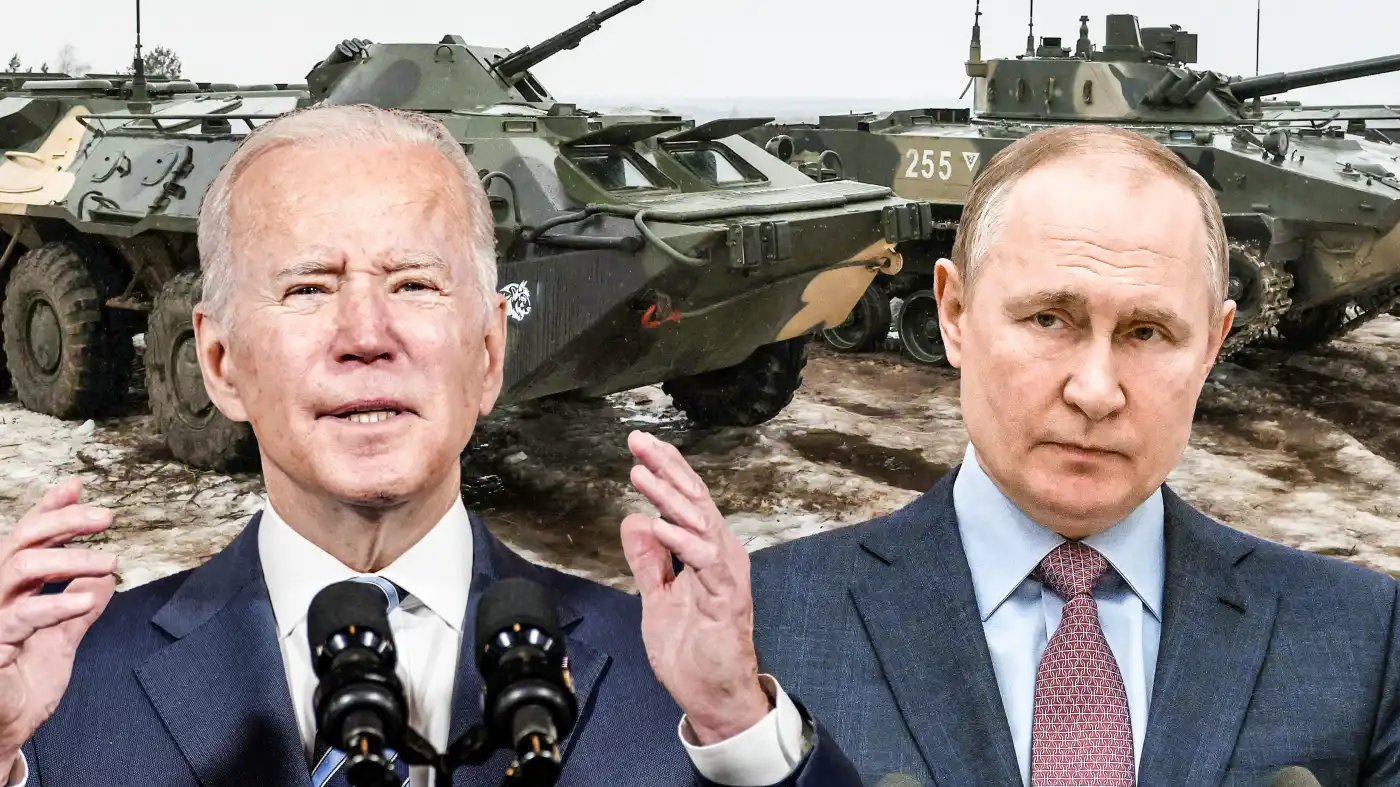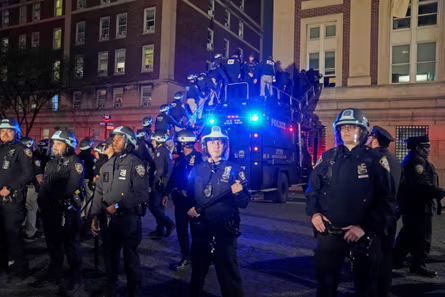President Biden says that Ukraine has the full support of the U.S. Volodymyr Zelensky disagrees.
President Biden, in a passionate speech from Warsaw on Saturday, proclaimed the West’s complete support for Ukraine. “We stand with you, period,” Biden said.
The next day, Ukraine’s president, Volodymyr Zelensky, offered a different message: He criticized the West for not doing enough. In a videotaped speech to Ukrainians, Zelensky contrasted their “determination, heroism and firmness” with the lack of courage from Western countries that had refused to send jets and tanks to Ukraine.
In a detailed interview with The Economist this past weekend, he also called out the U.S. and, even more so, France and Germany, for not doing more. “We have a long list of items we need,” Zelensky told The Economist’s editor in chief, Zanny Minton Beddoes, and a colleague during a sit-down interview in a Kyiv bunker.
Who’s right — Zelensky or Biden? Today, I will try to answer that question, with help from Times colleagues. I’ll do so by breaking Zelensky’s argument into three categories. The first critiques the West’s behavior in the run-up to the war. The second covers current requests from Zelensky that may be more performative than real. The third deals with steps that could help Ukraine and that the West is choosing not to take.
1. Alternative history
Some of Zelensky’s complaints are about the past. He says that the West could have altered Vladimir Putin’s war plans by imposing harsh sanctions as Russia mobilized for war. He made the same argument at the time.
It is obviously impossible to know if Zelensky is right, but he has a legitimate case. The West’s initial response to Russia’s buildup was timid, offering little military support and threatening only modest sanctions. As The Atlantic’s Anne Applebaum wrote at the time, “Tragically, the Western leaders and diplomats who are right now trying to stave off a Russian invasion of Ukraine still think they live in a world where rules matter, where diplomatic protocol is useful, where polite speech is valued.”
Putin seemed to assume that the Western reaction would remain fairly modest, much as the response to Russia’s 2014 annexation of Crimea had been. He decided that a full takeover of Ukraine would be worth the price.
But the brutality and scope of the invasion changed the West’s approach. Biden and the leaders of other countries rallied to impose sweeping sanctions. The ruble and Russian stocks have plunged, and Putin himself has acknowledged that the economic damage will be large.
“If tougher sanctions had been levied earlier, a full-scale Russian attack would not have occurred,” Zelensky claimed this weekend. “It would have been on a different scale,” he added, “giving us more time.”
This argument is a way for him to urge the world not to make the same mistake again. Ukraine’s allies should “act pre-emptively, not after the situation becomes complicated,” he said.
2. Politics as performance
It’s often naïve to take the words of political leaders literally. The public speech of politicians tends to combine an honest expression of their views with an attempt to influence others. Zelensky, an actor by training, is well aware of the performative part of politics.
Over the past few weeks, he has repeatedly asked for forms of help that he surely knows he will not get, my colleague Max Fisher says. The clearest example is a no-fly zone over Ukraine. Establishing one could require the West to shoot down Russian planes and even bomb air-defense systems inside Russia, potentially starting a world war.
Still, making unreasonable requests has value to Zelensky. It signals to Ukrainians that he is doing everything possible to defeat Russia and also makes it harder for the West to say no to other requests. “He’s asking for the moon, knowing he’ll get less,” Eric Schmitt, a senior writer at The Times who has long covered military affairs, told me. “But it keeps the pressure on the West to deliver the stuff he needs.”
3. What Ukraine wants
Another set of requests coming from Zelensky and his aides is more literal and realistic. The biggest is their plea for the kind of equipment that allows a smaller army defending territory to hold off a larger, attacking army. The U.S. and other allies have already sent a large amount of such equipment, like shoulder-fired rocket launchers, but Ukraine says that it needs more.
So far, Ukraine’s military has performed better than most observers expected, preventing Russia from taking over most major cities while reclaiming a few towns in the northeast. Because Russia has an enormous military, however, a war of attrition tends to work to its advantage, Eric notes. Russia can continue to bomb Ukrainian troops and civilians and hope for eventual capitulation.
“The Russians have thousands of military vehicles, and they are coming and coming and coming,” Zelensky said.
Western military officials argue that they are providing Ukraine with weapons and equipment as fast as is logistically possible. Zelensky says that his country’s fate may depend on the West doing better.
READ ALSO: US: Biden’s double standard on refugees
Other requests by Zelensky fall into a middle ground: It’s unclear whether Ukraine expects the West to say no. This list includes additional tanks and fighter jets as well as further sanctions on Russia and an end to European purchase of Russian energy.
The bottom line
The uncomfortable truth is that Ukraine and the West do not have identical interests, despite Biden’s suggestion to the contrary.
Ukraine is fighting for survival, and its people are dying. Its leaders need to try any strategy that might plausibly help. The leaders of the U.S., E.U. and other allies genuinely want to come to Ukraine’s defense, but they are also concerned about their own economies, domestic support for their policies and the risk of nuclear war with Russia.
More on Ukraine
Biden said he was expressing “moral outrage” — not U.S. policy — when he said Putin “cannot remain in power.”
Zelensky says Ukraine will analyze the effectiveness of Western sanctions against Russia.
The war has cost Ukraine almost $565 billion, including more than 4,900 miles of damaged or destroyed roadways, its economy minister said.
The besieging of cities and the deliberate targeting of civilians are tactics Russia has used before: The Times’s Carlotta Gall saw it firsthand.
An online video appears to show Ukrainian soldiers beating and shooting Russian prisoners of war.
Novaya Gazeta, an independent Russian newspaper, has suspended publication.














